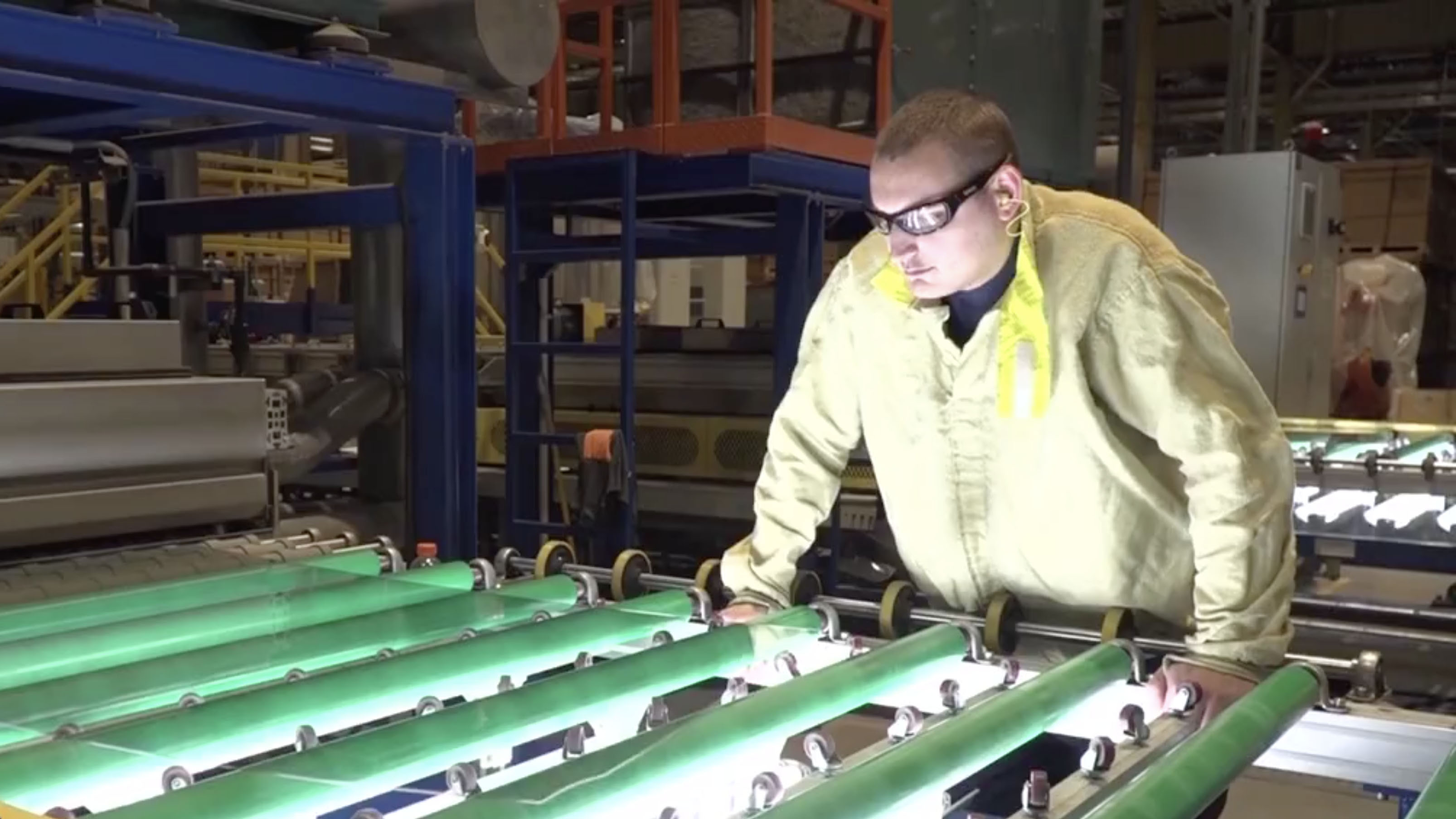02:55

Earlier this summer, a Chinese company became the subject of a Netflix documentary. The movie, titled American Factory, highlights the positives and negatives of Chinese auto glass company Fuyao's cross-cultural manufacturing operation in the Midwestern U.S. state of Ohio.
With Chinese and American workers at the plant sometimes at odds with each other, the plant's management said they've learned much from the experience.
Fuyao's Auto Glass Ohio took over a vast, vacant plant in 2014, having previously been abandoned by General Motors (GM). The plant was the focus of "American Factory," the first produced for Netflix by a production company established by former U.S. president Barack Obama and his wife Michelle.
The film raises a range of issues about the company's operations. Jeff Liu, Fuyao's president and CEO, told CGTN watching the film provided important lessons.
"I don't feel the negative. For me, [it's] always a learning curve. For me personally, I saw the movie three times. Every time I saw the movie I learned something from there," said Liu.
Fuyao's management believes it has now addressed a number of the issues that were raised in the documentary; not least the communication problems between the U.S. and Chinese employees.
That clash of cultures became a major feature of the documentary.
"For me, when I took the job, I found out there is a communication problem. You got to have a great team that works together. The U.S. and China are totally different cultures. But they all have good people, so how do we utilize both to our advantage?" Liu added.
Doug Hicks has worked at the plant for two and a half years. He said communication among the workers has improved significantly.
"When I first started, it was rough because there is a language barrier. But being here and working with them, you understood a lot more and you see where it was coming from. Working with them is just incredible as you learn so much. And they know so much. And that you can feed off of them," he said.
The plant now employs more than 2,000 people. Some of the workers feel, in the longer term, that there could be advantages to the China-U.S. working relationship.
"Everybody is working towards one goal. Everybody wants to see this place successful. Nobody wants to see this place go downhill. So when two cultures come together to make one, that is powerful right there," said Edwin Hobson, an employee at Fuyao.
Phil Parker, president and CEO of the Dayton area Chamber of Commerce, said he remembers GM's plant closure all too well. Parker now hopes that Fuyao's success could help entice other Chinese companies to set up operations in the region.
"We think that there is this opportunity for us. Because we are developing this great relationship with Fuyao," said Parker. They are going to do everything they can to cultivate more economic impact with other Chinese investment. He thought it is going to be wildly successful.
Although there have been challenges, Fuyao's experience could make the transition easier for other Chinese companies in the future.